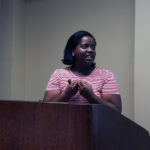Posted: 3/28/08
RIGHT or WRONG?
Political correctness
More and more, when I treat people as I believe a Christian should, other people dismiss my actions by saying something like, “That’s so PC”—politically correct. Even Christians seem to reject Jesus’ statement, “Love one another.” How should I respond?
One good way to begin to respond to your Christian critics would be to quote more of the words of Jesus. For example, Jesus made it clear that loving God and one another are the two great commandments. Jesus said: “You shall love the Lord your God with all your heart, and with all your soul and with all your mind. This is the great and first commandment. And a second is like it: You shall love your neighbor as yourself. On these two commandments depend all the law and the prophets” (Matthew 22:37-40).
How far does this second commandment reach? Hear again the words of Jesus: “You have heard that it was said, ‘You shall love your neighbor and hate your enemy.’ But I say to you: Love your enemies and pray for those who persecute you, so that you may be sons of your Father who is in heaven. … For if you love those who love you, what reward have you? Do not even the tax collectors do the same? And if you salute only your brethren, what more are you doing than others? Do not even the Gentiles do the same? You, therefore, must be perfect, as your heavenly Father is perfect” (Matthew 5:43-48).
That’s a tall order, obviously. But it’s one Christians must strive to meet. Meeting that obligation includes loving all God’s children, including our enemies and those who differ from us in their skin color, religion, gender, nationality, sexual orientation, and political attitudes and affiliations.
Does loving all God’s children mean that we must affirm (or keep silent about) actions that violate spiritual standards? No. After all, Jesus had words of correction regarding actions that crossed the line. For example, he condemned not only the failure to love one’s neighbors, but also showy piety, the worship of money, self-exaltation and apathy toward the plight of the poor, the sick and the hungry. Likewise, we should hold fast to Christian standards and call for faithfulness to them.
But in doing so, we should remember at least three other biblical admonitions. First, we should deal with the “logs” in our own eyes before attempting to remove the “specks” in others’ eyes (Matthew 7:1-5). Second, we must speak the truth in love (Ephesians 4:15). And third, we should remember we see through a glass darkly—we cannot know all God knows (Corinthians 13:12). As I read the Bible, we are called to practice this kind of love. It is not “political correctness” or any human invention. It is a gift from God, and it is one that we must share with others.
Melissa Rogers, director
Center for Religion & Public Affairs
Wake Forest University, Winston-Salem, N.C.
Right or Wrong? is sponsored by the T.B. Maston Chair of Christian Ethics at Hardin-Simmons University's Logsdon School of Theology. Send your questions about how to apply your faith to [email protected].














We seek to connect God’s story and God’s people around the world. To learn more about God’s story, click here.
Send comments and feedback to Eric Black, our editor. For comments to be published, please specify “letter to the editor.” Maximum length for publication is 300 words.